A Vancouver drug user rights group says it won’t stop distributing free, uncontaminated street drugs after Health Canada denied its request to expand low-barrier safe supply efforts across British Columbia.
And it has now applied to appeal Ottawa’s decision in a judicial review at the Supreme Court.
“As concerned citizens who love our community, we will do whatever we have to, buy whatever substances we need to, to keep those who use drugs safe,” said Drug User Liberation Front co-founder Eris Nyx in a Wednesday press conference with other drug user rights groups from across B.C.
The volunteer-run Drug User Liberation Front has given out small doses of cocaine, methamphetamine and heroin to people over 18 and currently using drugs since June 2020 in an effort to prevent escalating deaths from toxic drug poisonings.
No one has overdosed or died with the drugs DULF procures from the dark web and tests before distributing.
“We have an answer [to the crisis] that could be expanded across the province immediately with sanction from Health Canada,” said Nyx.
DULF’s unconventional approach reflects the urgency of bold action to address the toxic drug crisis in B.C., which has killed more than 10,000 people since 2016.
Prohibition is killing six people a day in B.C., Nyx said, but government efforts have not challenged that framework deeply enough. “We need a change in the way we approach this crisis,” she added.
Compassion clubs are a non-medical form of safe supply, a harm reduction strategy means of separating people who use drugs from the unpredictable and increasingly potent street drug supply.
Without an exemption from Health Canada in the public interest, DULF is breaking the law. No one has been arrested and many have even donated money to purchase the drugs, a demonstration of public support for bold solutions to the crisis, Nyx said.
DULF’s August 2021 submission to Ottawa had the support of Vancouver city council, Vancouver Coastal Health, the BC Centre on Substance Use and the First Nations Health Authority.
But on July 29, Health Canada denied DULF’s application to be exempt from the Controlled Drugs and Substances Act and formalize the compassion club model of safe supply across B.C. in a 15-month evaluative pilot program, the group announced Wednesday.
DULF has been running the proposed club without federal approval since July 31, Nyx said, distributing more than 200 grams of untainted, clearly labelled street drugs. It has no plans to stop.
“Today marks one month of running the club successfully without overdose and without death,” she said. “This represents a solution.”
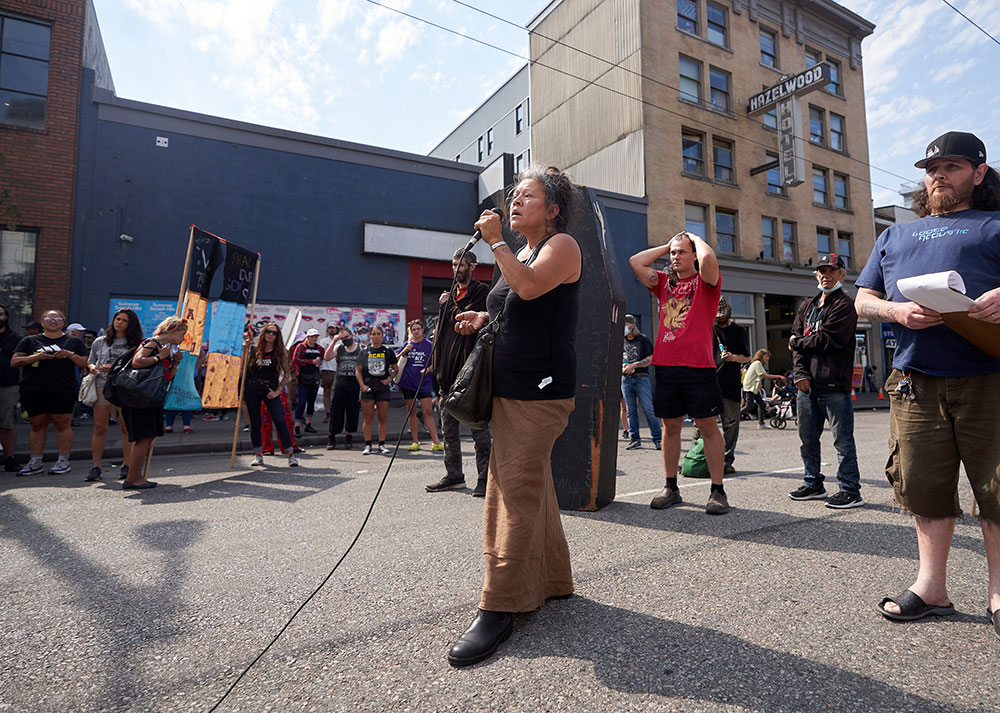
The news came the same day as more than 200 people who use drugs, allies and advocates marched in Vancouver’s Downtown Eastside neighbourhood to mark International Overdose Awareness Day.
The sun beat down on the crowd as it moved down Hastings, stopping at each major intersection to occupy the space and hear from more speakers.
Some grieved the deaths of loved ones lost a decade ago, while many others were more recently bereaved. One mother said her adult son died in his sleep just five days ago.
“Today I feel an immense amount of rage,” said Beelee Lee, vice-president of the Coalition of Peers Dismantling the Drug War.
“We keep meeting and speaking like this and remembering those we lost because the government won’t act,” Lee said.
Since toxic drug poisoning deaths were declared a public health emergency on April 14, 2016, the death rate has more than doubled to 41.6 per 100,000 in B.C.
But the prohibition regime speakers said is to blame for soaring deaths began long before then, with the banning of alcohol use by Indigenous peoples under the Indian Act in 1884. Bans on non-medical cocaine and morphine use followed in 1911, after a racist riot targeted Vancouver’s Chinatown.
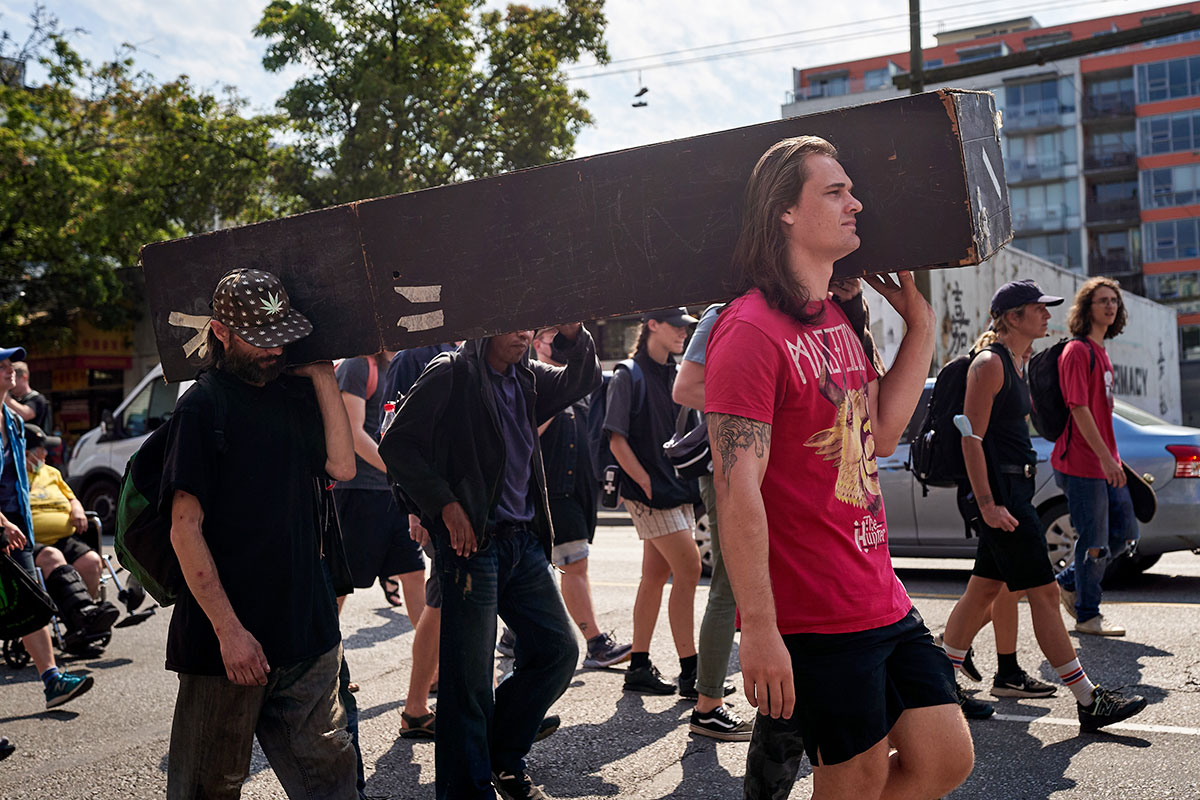
First Nations people are also more than five times as likely to die of toxic drug poisonings than non-Indigenous people, according to a 2021 report from the First Nations Health Authority.
“The opioid crisis is real, with four family members immediately lost in my circle, all teenagers,” said Kwitsel Tatel, a member of the Stó:lō Nation.
Governments have not adequately challenged the criminalization and prohibition that leaves people stuck accessing a market incentivized by profit and run by organized crime, speakers said.
This has led to increasing contamination with more potent substances such as fentanyl and carfentanil, as well as the rise of benzodiazepines, which make drug poisonings more difficult to reverse and more likely to be fatal when mixed with opioids.
Myles Harps, a member of the Vancouver Area Network of Drug Users, lost his wife Laura Lee to a toxic drug poisoning in Vancouver last year, after she bought a bad batch of heroin.
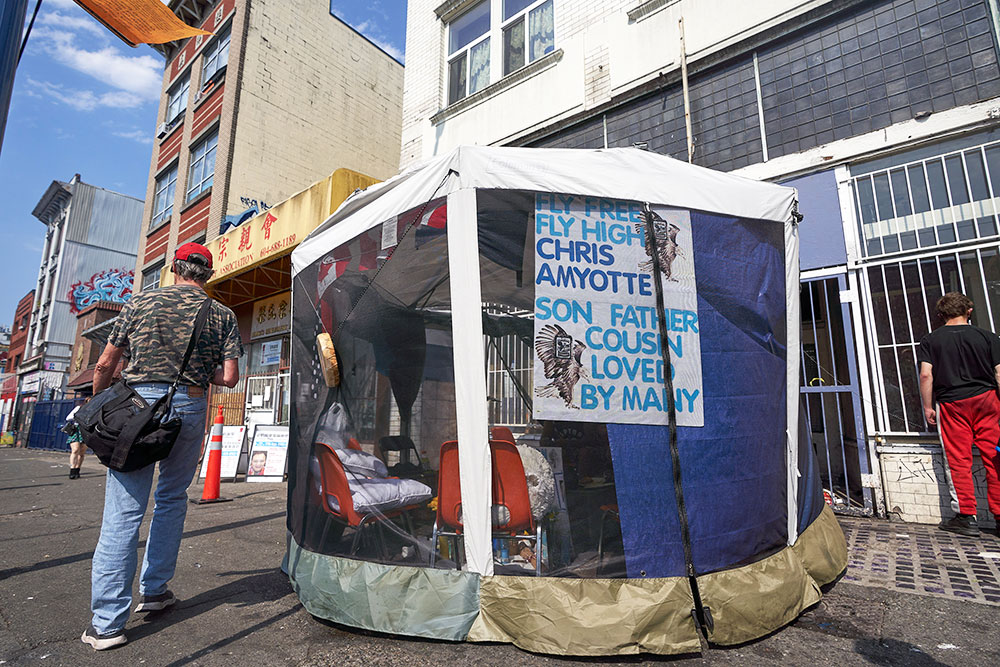
“We’re now losing people all the time. Good people. People that count,” he said as the demonstrators occupied the intersection of Main and Hastings. “You’ve got to fight for the people that are here today.”
And many stressed that government actions on prescribed safe supply and the forthcoming decriminalization of small amounts of some drugs for personal use don’t go far enough to save lives.
Fred Cameron works for SOLID Outreach Society in Victoria. Two SOLID members recently passed away, including Paige Phillips, a 32-year-old mother of two young daughters.
My colleagues “have everything our government and the best and brightest have to offer, and we still lose them,” said Cameron.
Nyx has hope that DULF’s compassion club will be able to save lives even without federal permission, but she wants Ottawa to get out of the way and allow them to expand their response.
“We are not criminals, we are simply those who care about the people we love,” said Nyx. “Move over, or we will move on over you.” ![]()
Read more: Health, Rights + Justice, Politics


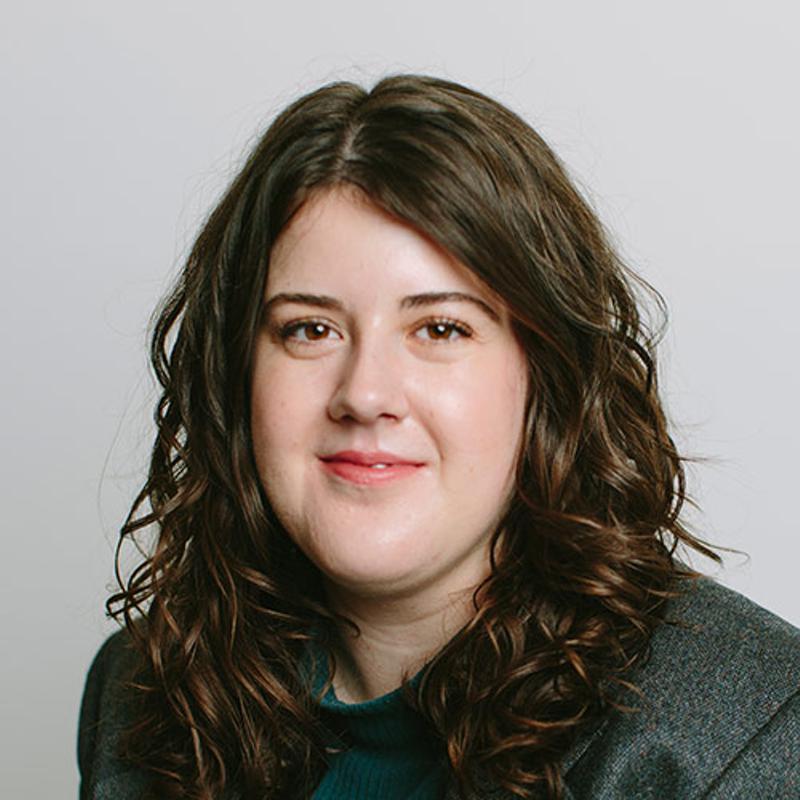

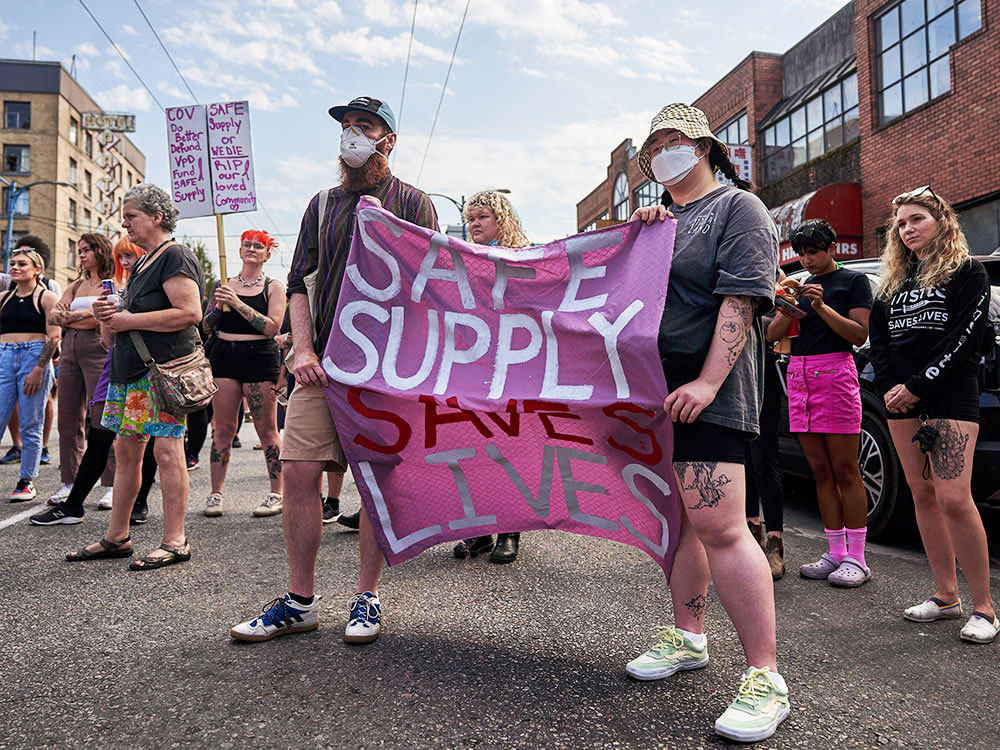












Tyee Commenting Guidelines
Comments that violate guidelines risk being deleted, and violations may result in a temporary or permanent user ban. Maintain the spirit of good conversation to stay in the discussion.
*Please note The Tyee is not a forum for spreading misinformation about COVID-19, denying its existence or minimizing its risk to public health.
Do:
Do not: